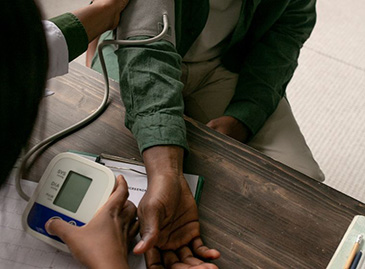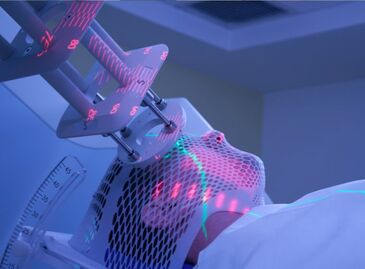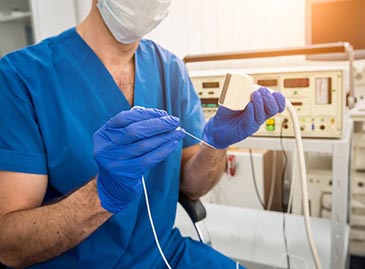
What Does a Sports Physical Consist Of?
A sports physical is an important health checkup for individuals who actively engage in sports or intense physical activities. To make sure your body is prepared for the physical demands of your activity, whether you're someone who does physical activities for fun, a professional athlete, or just beginning a new fitness routine, obtain a sports physical.
This is more than just a standard medical examination. In order to find any underlying issues that may threaten health, it focuses on heart health, lung function, muscle strength, and overall fitness. We'll go over the components of a sports physical, its significance, and how it can help you perform at your peak in this tutorial.
Why Is Sports Physical Important?
Playing sports can be rewarding, but it also puts stress on the body, particularly the heart, lungs, and muscles. A sports physical helps:
- Identify hidden health risks before they become serious
- Prevent injuries by assessing muscle balance, flexibility, and joint stability
- Boost performance and endurance by maintaining ideal lung and heart health
- Monitor your overall health, keeping track of your blood sugar, nutritional deficiencies, and inflammation markers.
If you intend to take part in a new sport or work harder during your training, a sports physical is a great way to ensure you're in the best shape.
Key Components of a Sports Physical
1. Cardiovascular Health Assessment
Your heart works hard during sports, so making sure it’s strong and healthy is a top priority. Common tests include:
- Electrocardiogram (ECG) – In order to identify latent cardiac problems or irregular heartbeats, this test monitors the electrical activity of your heart.
- Echocardiography –a heart ultrasound that helps detect any anomalies by giving a thorough picture of the anatomy and function of your heart.
- Cardiac Stress Test – evaluates the performance of your heart under physical stress. It typically involves running or walking on a treadmill while your blood pressure, heart rate, and oxygen level are tracked.
2. Respiratory Function Tests
Good lung function is needed for endurance and stamina. Spirometry tests are often used to test lung capacity and spot conditions like asthma or breathing issues brought on by activity.
3. Blood Tests and Nutrient Analysis
Your blood carries vital information about your overall health. A sports physical often includes:
- Hemoglobin and Iron Levels – Low levels can lead to fatigue and reduced endurance.
- Vitamin D and B12 – Essential for muscle recovery and energy levels.
- Cholesterol (LDL, HDL, Triglycerides) – Helps assess heart health.
- Inflammation Markers (HS-CRP) – Detects signs of stress or overuse injuries.
- Blood Sugar (Fasting Glucose) – Important for energy metabolism and diabetes prevention.
These tests help to maximize nutrition, detect deficiencies, and avoid conditions that could affect performance.
4. Musculoskeletal and Joint Evaluation
Muscle imbalances and weak joints can increase the risk of injuries. A sports physical usually includes:
- Flexibility and Strength Tests – To evaluate muscle stability and a.
- Joint Stability Tests – To detect potential weaknesses that could lead to injuries.
- Postural and Gait Analysis – Helps identify movement patterns that might contribute to muscle strain or joint stress.
For athletes involved in high-impact sports, additional tests like bone density scans may be recommended.
When Should You Get a Sports Physical?
The best time for a sports physical depends on your level of activity, but general recommendations include:
- Preseason Checkup – Ensures you’re physically ready before training starts.
- Midseason Evaluation – Helps track fitness progress and detect any minor issues before they become serious.
- Postseason Assessment – Focuses on recovery and any lingering injuries.
- Before Starting a New Sport – Especially important for beginners or those increasing their training intensity.
The secret to long-term success in any activity is regular sports physicals, which keep athletes ahead of possible health issues.
Benefits of a Regular Sports Physical
A sports physical offers quite many long-term benefits, including:
- Early Detection of Medical Conditions – Identifies issues like heart abnormalities, lung problems, and nutrient deficiencies before they affect performance.
- Optimized Performance – Helps fine-tune training routines based on personalized health insights.
- Injury Prevention – Identifies postural irregularities, weak muscles, and unstable joints before they cause major harm.
- Faster Recovery – Gives insights on how to recover from injuries or exhaustion more efficiently.
How to Prepare for Your Sports Physical
To get the most reliable results, follow these simple tips:
- Provide your medical history – Previous test results, injuries, and current medications can aid doctors make informed decisions.
- Wear Comfortable Athletic Clothing – For flexibility and movement tests.
- Stay Hydrated – Blood test results and general performance can be impacted by dehydration.
- Avoid Caffeine or Heavy Meals Before Tests – Can interfere with heart and lung assessments.
A well-prepared sports physical ensures a smoother and more effective evaluation.
Sports Physical Costs and Availability
The tests that are performed and the location determine how much a sports physical costs. The cost may go up for additional tests, such as blood tests and evaluations of the heart or lungs. Depending on the facility and the kind of evaluation required, costs in Turkey can vary. While some clinics give individualized examinations, more reasonably priced packages are frequently offered by schools and sports organizations. Athletes can more easily maintain their health and be prepared to give their best effort because of this.
Conclusion
A sports physical is more than just a medical formality; it's an essential tool for staying fit, healthy, and performing at your best. This examination evaluates lung function, muscular strength, cardiovascular health, and general fitness in order to help avoid injuries, identify hidden health risks, and maximize performance.
If you participate in frequent physical activity or are an athlete, make sports physicals a priority. A well-prepared body is the key to reaching new fitness goals while minimizing health risks.
Essential Sports Checkup Price Turkey



